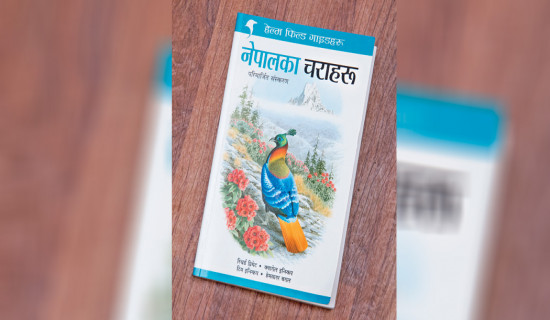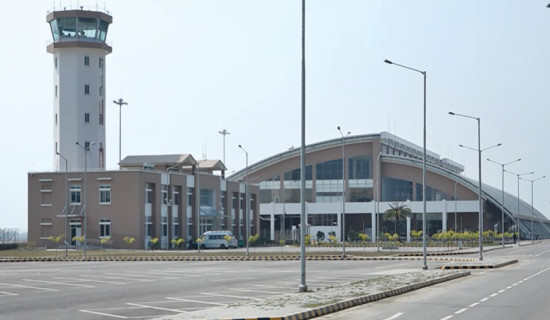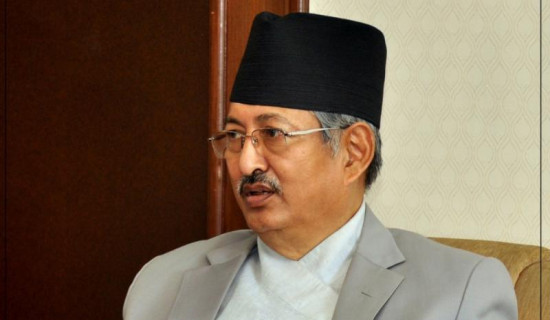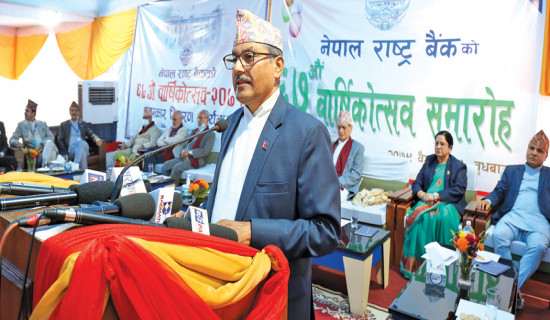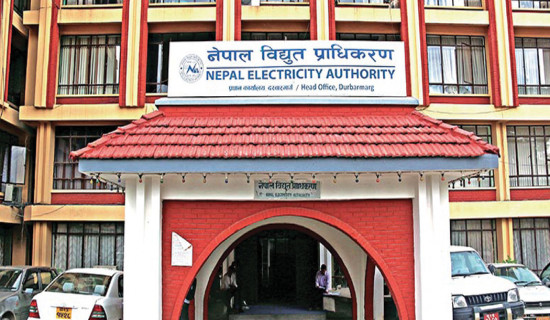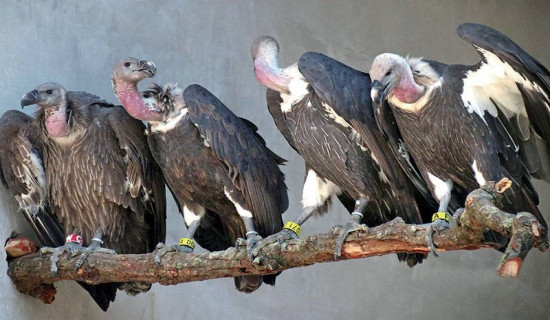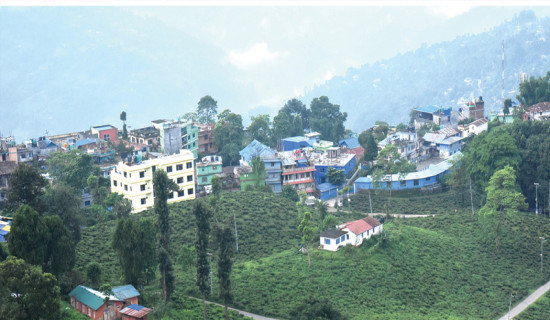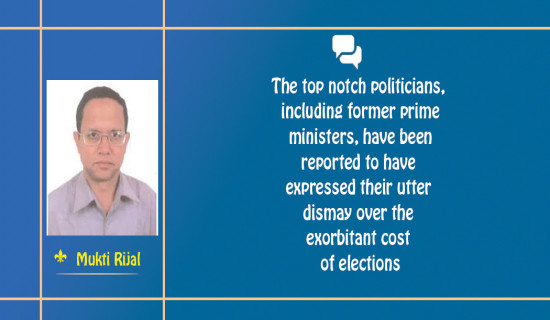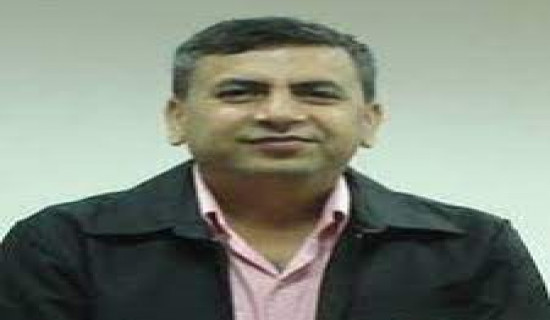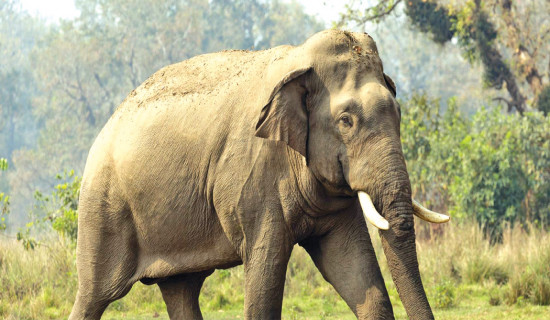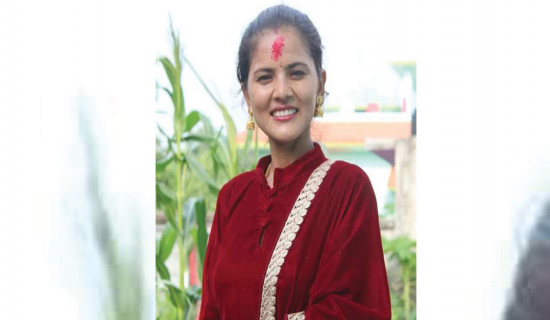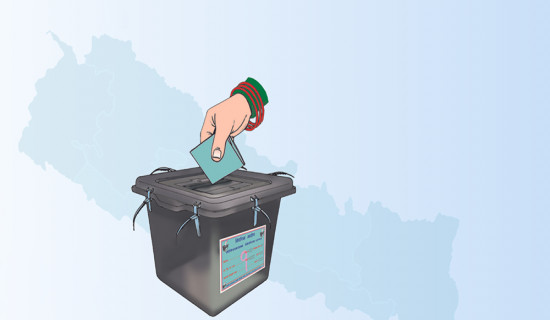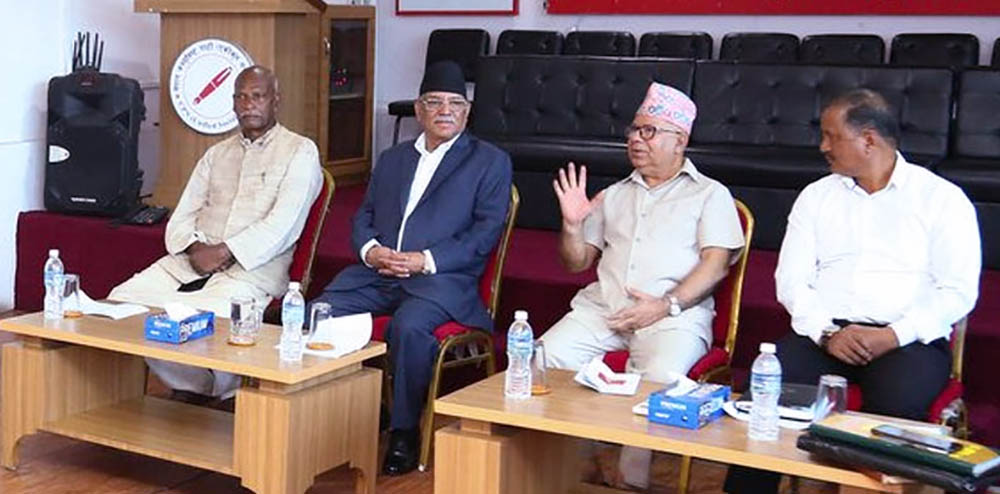- Friday, 22 August 2025
Second edition of Birds of Nepal launched
A field guide book “Birds of Nepal” (Nepalka Charaharu) in Nepali version (second edition), translated by reputed ornithologist Dr. Hem Sagar Baral was unveiled here on Tuesday. The handy book, originally written by Dr. Baral, Richard Grimmett, Carol Inskipp and Tim Inskipp in 2016 has been translated into Nepali targeting Nepali field guides. The first Nepali edition was published in 2003 in which 861 species of birds were mentioned, and 27 more species of birds have been added in the new version of the book in Nepali.
Test flight at Gautam Buddha airport today
A test flight at the Gautam Buddha International Airport (GBIA) will be conducted on Thursday, informed Civil Aviation Authority of Nepal (CAAN). According to CAAN, an aircraft of Nepal Airlines will be conducting the test flight. CAAN Spokesperson Deo Chandra Lal Karn informed that the flight will leave Tribhuvan International Airport (TIA) for GBIA at 3 pm on Thursday and return from GBIA at 5 pm. Earlier, the test flight was scheduled on the day of Nepali New Year on April 14 but was postponed.
'Do not believe in rumours'
Minister for Home Affairs Bal Krishna Khand Wednesday said that baseless rumors were still being spread that the local election would not be held on the slated date of May 13. Speaking at a press conference organised by Nepal Press Union Chitwan at the Bharatpur Airport today, Home Minister Khand reiterated that the election would be held on the scheduled date of May 13. "In the past, there were rumors that elections would not be held. There were rumors that the constitution would not be promulgated even days after its promulgation. Apart from other things, the 14th General Convention of the Nepali Congress was also said to be not held in time.
COVID-19, war taking toll on national economy
Governor of the Nepal Rastra Bank (NRB), Maha Prasad Adhikari, said that the continuous increase of oil prices in the international market and impact of Russia-Ukraine war has created pressure on inflation. "It will continue to impact our national economy. Meanwhile, there is a risk of new wave of COVID-19," he said while the NRB's 67th anniversary programme organised at its office in Baluwatar on Wednesday. He said that the central bank had announced various instruments and policies to revive the businesses and economy in the wake of the COVID-19 pandemic
NEA to cut power in industries with prior notice
The unthinkable has happened: With reduction in electricity generation within the country and similar energy dearth in India, load shedding has started in industries across the country. The NEA has not been able to supply electricity to the industries round the clock for three days as India could not supply the required electricity to the Nepal Electricity Authority (NEA) and reduced power generation in Nepal, said Kul Man Ghising, managing director of NEA.
Dozens of houses damaged by storm in Bajura
A fire caused by the storm at the house of Tuli Devi Budha in Ward No. 2 of Khaptad Chhededaha Rural Municipality of Bajura district killed an elderly on Tuesday night. An unprecedented storm had ignited fire in the house from a brazier while cooking food at around 8 pm. “Tuli Devi Budha, a 75-year-old, and 15 livestock died in the fire,” said Gindra Bahadur Bogati, information officer of Bajura District Police Office. Two oxen, a cow and 12 goats in the house had died.
Kasara's vulture breeding centre to be closed
The vulture breeding centre at Kasara in Chitwan National Park will be closed. According to officials, the breeding has not been effective and the number of vultures is also increasing in the open itself. The centre, which was established 14 years ago, has so far raised 18 chicks. It is going to close after it failed to raise any chicks in the last three years. Chief Conservation Officer of the park, Hari Bhadra Acharya, said that the vultures have become more numerous in nature and the breeding centre is not effective for now. Established in 2008, the centre was started by bringing eggs and vultures from the nature. The vulture conservation programme is being organised through Jatayu restaurants focusing on vultures in the nature. Currently, there are only 10 vultures in the breeding centre .
Diversifying trade, consumption of tea
When United Nations' General Assembly in November 2019 adopted a resolution to establish May 21 as an International Tea Day, Nepal had already completed two decades of observing National Tea Day on Baishakh 15. Thus, today is 26th National Tea Day in Nepal. Tea is not just a drink but also a part of hospitality culture in Nepal. It’s a conversation starter and an easy-to-serve beverage to welcome guests. It depends on the taste of guest to decide the host on what type of tea should be served. While most of the Nepalis are fond of milk tea, some prefer one without sugar and whitener. Moreover, because of the health consciousness, popularity of green tea is also soaring. It is worthwhile to mention here that more than a thousand types and forms of tea are consumed worldwide.
Feat In Forest Cover
Nepal is on a right track to restore her past glory couched in the popular aphorism – Hariyo ban, Nepal ko dhan (Green forest, Nepal’s wealth.) Indeed, the dense forests spread in a large swath of land across the country used to symbolise her identity, prosperity and ecological health for centuries. The thick forest in the Terai belt once served as a defensive wall against any external threat from the southern part during the Rana regime. The then rulers had preserved forests as strategic purpose to avoid mingling with the outsiders. This was one reason behind the high coverage of forest in the past. But, with the growing population and political changes, the forest land began to decline specially in 1980s, 1990s and early 2000s. During this period, there was reckless drive to clear forests for the purpose of increasing agriculture areas, human settlements, timber harvesting and grazing fields, among others.
Curbing Monetary Muscle In Polls
The prevalence of monetary muscle in politics has been an issue of growing concern worldwide. The countries, irrespective of their stages of developmentand institutionalisation of democracies, are all faced with the consequences arising out of the use and abuse of money in elections. A few months ago, South Africa had held local polls where a particular concern had been expressed over the misuse of the resources at the local polls. In the 2020 US presidential polls, the use of monetary muscle was at its worst manifestation. Nepal has not been an exception to it. The top notch politicians, including former prime ministers, have been reported to have expressed their utter dismay over the exorbitant cost of elections even though they have to molest and manipulate the figures and file their returns to the Election Commission swearing that they have not breached the expenditure ceiling fixed by the constitutional entity.
Priority Agenda For Health Strategy
The constitution of Nepal has clearly articulated basic health care as a fundamental right of its citizens. However, there are still critical needs and challenges of ensuring equitable access to quality health services for all in the federal context. Nepal’s new health policy 2019 aims at developing and expanding a health system for all with a particular focus on social justice and good governance. In this context, one of the strategic objectives of Fifteenth Plan (2019/20- 2023/24) is to transform the profit-oriented health sector gradually into a service-oriented sector. This can be achieved by enhancing social accountability of federal, provincial and local governments, and maintaining effective regulation for easily accessible and quality health services including preventive, promotional, curative and palliative care.
You Never Know
I like the phrase 'you never know'. This three-word phrase has a deep meaning hidden in it. In fact, this phrase may link your past to the present and even to the future. It also may give you hope. Further elucidation will make it clearer. To begin with, I never knew I would even be born. After all, who would know? But without their prior knowledge every human is born. I never thought I would ever get married and have a family. I never thought I would come to Kathmandu and stay here for so many years. There are numerous things that have happened which I had never even dreamed of. And I suppose it applies the same to you all. So, you never know. The phrase “you never know” can be a hope and morale booster.
Asian vision shared to conserve elephants
Government representatives from 13 Asian countries have assembled at the 3rd Asian Elephant Range States Meeting to strengthen collaboration and cooperation amongst them in order to protect elephants on the continent. The Asian Elephant Range States Meeting, hosted by the Government of Nepal, is taking place from April 27 to 29, 2022, in Kathmandu, Nepal. Minister for Forest and Environment Ramsahay Prasad Yadav inaugurated the meeting.
24-year-old announces candidacy for Chaurpati vice-chair
Anita Khadka, 24, has registered her candidacy for the vice-chairpersonship of Chaurpati Rural Municipality, Achham. She registered her candidacy from the CPN (UML) on Monday, becoming probably the youngest person to stand for elected office in the upcoming local election. Talking to The Rising Nepal after her registration, Khadka, a resident of Lungra, Chaurpati–5, said that she was standing for her vision of and responsibility towards her society. “I dream of developing and beautifying my birthplace. That is why I am standing for this election,” she explained her decision. “I was born and raised here so I know the local problems. I will try my best to find solutions that work best for everyone.”
8 assembly members vying for mayor
Eight members of the four provincial assemblies from across the country have registered their nominations to contest the election of mayor in metropolitan cities and municipalities by resigning from their post. One of them is former minister of provincial government. UML mayoral candidate of Kathmandu Metropolitan City Keshav Sthapit is one of them who resigned as the member of Bagmati Province Assembly a day before he registered his candidacy. Sthapit had also served as a Bagmati Province Physical Infrastructure Minister. Alongside him, two other Bagmati Province Assembly members have also resigned for the same purpose.


